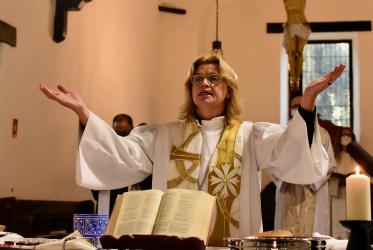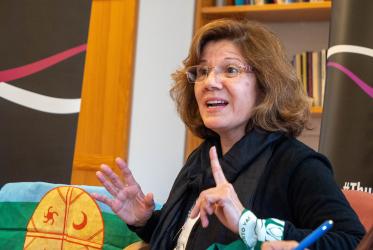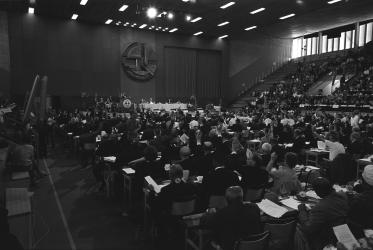Pentecostal Mission Church
(Misión Iglesia Pentecostal, MIP)
In 1952 a group of 120 believers left the Evangelical Pentecostal Church, one of the two largest Pentecostal churches which have their origins in the revival of 1909, in solidarity with four lay leaders who had been unjustly expelled from the church. After a year of unsuccessful negotiations to solve the problem, the group decided to form a new church, which was officially recognized in 1954, under the name Pentecostal Mission Church. Constituted in Santiago, the MIP extended through the missionary efforts of its members to the south-central part of the country and to Argentina, mainly among Chilean immigrants. Today the Pentecostal Mission Church in Argentina is an autonomous church, in full communion with the mother church in Chile.
Preserving its identification with the Pentecostal movement, the MIP defined itself as a "church of open doors", and became a pioneer of Pentecostal openness towards cooperation and communion with other Christian churches. It was a founding member of several inter-church organizations, such as the Evangelical Theological Community of Chile (1964) and the Christian Fellowship of Churches (1982). As is characteristic of the Chilean Pentecostal movement the MIP established itself among the poor sectors of the society. The increasing concern for the quality of life of these social groups led the church towards the end of the 1970s to found the "Evangelical Service for Development" (SEPADE, in Spanish), which is now an autonomous ecumenical institution (www.sepade.cl).
The MIP maintained its ecumenical and prophetic stance publicly during the difficult years of the military regime (1973-1990), when the official propaganda equalled ecumenism with communism. The result was that many members who were afraid of reprisals took their distance from the church. While other Pentecostal churches experienced growth, the MIP had to face a crisis of decline. Currently the church is searching for ways that would allow it to expand, maintaining a creative tension between its Pentecostal identity and its ecumenical vocation. The MIP understands itself as part of the one church of Christ, and as such shares the Trinitarian faith as expressed in the Apostle's Creed. Similarly, it shares the fundamental principles of the Protestant Reformation (only grace and only faith, only Christ, and only the scriptures), the Pentecostal emphasis on the transforming power of the Holy Spirit in the life of human beings (John 3:5-8) and the permanent presence of the Spirit in the faith community, enabling it to witness to the gospel "until the ends of the earth" (Acts 1:8).




